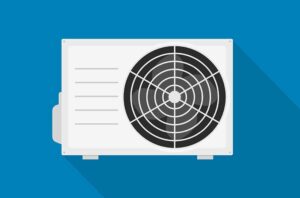Adiabatic CO2 system promises big energy savings
21st July 2024
AUSTRALIA: An indirect evaporative CO2 refrigeration system which promises potential energy savings of 19% is being trialled in one of Australia’s leading supermarkets.
Researchers at the University of South Australia have worked with industry to build what it claims is a world-first, energy-efficient refrigeration system that could revolutionise how we cool supermarkets, hospitals, abattoirs and other systems.
The indirect evaporative (dew point) carbon dioxide refrigeration system, co-developed with Glaciem Cooling Technologies, has been installed in a Coles supermarket in Norwood, South Australia.
Preliminary results indicate that the system can reduce annual refrigeration energy consumption by 19% compared to a more conventional spray-type adiabatically cooled CO2 refrigeration system and reduce peak electricity demand by 37%. The most significant reduction occurs in hot, dry climates.
The DP-CO2 system is comprised of three gas cooler units which integrate 12 Seeley International CW-15S dew point coolers to provide the required heat rejection capacity for Coles’ refrigeration system.
The system was also integrated with a custom-built monitoring system, comprised of 115 sensors which measure key properties such as temperature, pressure and energy across multiple locations and points within the system.
The DP-CO2 system was commissioned between January to May 2023, and the Coles store opened successfully in June 2023.

Based on the 8-month monitoring period between July 2023 and February 2024, the system was able to deliver cool 17°C temperature air to the gas coolers despite the ambient temperature exceeding 40°C.
The average difference between the ambient air temperature and the air temperature supplied to the gas coolers was 9.8°C, which the researchers say is impressive given that this includes cooler overnight temperatures, together with the fact that a significant proportion of the monitoring period occurred during the cooler months.
The supply air temperatures closely matched the ambient dew point temperature, which implies that the DP-CO2 system is most effective in climates where the dew point temperatures are typically low, regardless of the ambient dry bulb temperature.
Importantly, for the monitored system the supply air temperature was below 20°C for 98.4% of the time. That is, the implementation of the dew point cooler to the CO2 refrigeration system allowed the system to operate in its more efficient sub-critical mode for close to 99% of the time.
A computational model has been developed to assess the system’s potential across various sectors, including hospitals, meat processing plants, cold storage and aquariums. The greatest benefits are expected to be seen in hot, dry climates like central Australia.
Modelling across different sectors and climates showed that for a typical hospital kitchen room in Brisbane, the DP-CO2 system could reduce energy consumption due to refrigeration by 20-25% during the summer months compared to a conventional R134a system. However, the DP-CO2 system was less efficient in the cooler months, such that the total energy consumption across the whole year is approximately equal for both systems.
Additionally, the model was also applied to a typical abattoir, but with the location varied to represent sites across Australia. The results show that the DP-CO2 system reduces energy consumption by 4-27%, depending on location, compared to a conventional adiabatic CO2 refrigeration system. The most significant reduction occurs in hot, dry climates, such as those found in central and western Australia.
Further details and final report can be found on The Race for 2030 website, Australia’s industry-led Cooperative Research Centre.







